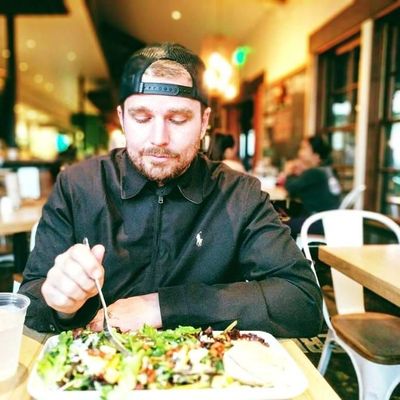This column reflects the opinion of the writer. Learn about the differences between a news story and an opinion column.
Faith and Values: Politics and patriotism should not stand in the way of learning to love God’s children

On Jan. 3, in the dead of night, U.S. missiles struck two cars leaving the Baghdad airport. A man named Qasem Soleimani and several officials from Iran-backed militias were killed.
Soleimani, the 62-year-old Iranian who headed the elite Quds Force, was the second most powerful person in Iran. President Donald Trump, we are all aware by now, ordered Soleimani’s execution. Shortly after Soleimani died, Trump went online and tweeted a picture of the American flag. He tweeted that Soleimani was responsible for ending thousands of American lives, that he was plotting to kill many more and that his execution should have happened years ago. Since that time, Trump has been using Soleimani’s death as a campaign pitch to demonstrate that he is the kind of commander-in-chief we want to keep around. In lockstep, the other side of the aisle has been questioning whether Trump overstepped his power, and if Soleimani’s execution really made the United States safer.
We are a captive audience and a poor echo chamber.
Iran’s Supreme Leader, Ayatollah Ali Khamenei, promised immediate and severe retaliation. More missiles flew in the air. At Soleimani’s funeral on the streets of Tehran, the Supreme Leader said prayers and wept over Soleimani’s casket. In her eulogy, Soleimani’s daughter vowed to avenge her father’s life with the agony of American suffering.
Last month, I marched through the streets of downtown Spokane. It was Martin Luther King Jr. Day. Arm in arm with Quakers, I held a sign that read: “#LoveThyNeighbor (No Exceptions).” As I walked through the icy streets —thinking of how much harder it was for King to march, given the violence that threatened and ultimately stole his life — I imagined Soleimani. I held Soleimani in my heart and said to myself, through my ignorance and the unconscionable evil he committed, “I love you, Qasem. God teach me to love you.”
To be honest, I don’t know much about the man. I know his father was poor and that Soleimani began working construction at 13. I know he had a family. I know he became a great military leader and that he considered war a kind of heavenly orchestra. I know people in the United States, most of whom could not pronounce his name a month ago, are convinced that he is a terrorist. People in the United States may not agree with his execution, but no one is mourning the death of Qasem Soleimani. No one sheds a tear for a terrorist.
I am grieved because we are not grieving. A beloved child of God fell down. I am mourning that we are not mourning. It is a sacred tragedy that a brother in the human family fell in love with war, stole innocent lives and died without making amends.
Our love has become cheap and easy. We are seduced by a discourse of destruction and discontent. Love is not red, white and blue. We have forgotten, or never really learned, what it means to love our enemies. Dr. King taught that hatred cannot drive out hatred, that darkness cannot drive out darkness, and that violence begets violence. He marched for his friends and his enemies because he knew what was at stake. If we do not fight nonviolently for real and robust social justice — mentally, emotionally, and physically — we will wound ourselves without knowing it and surely fail to build the kind of world we all long for.
Where are you learning to fight for peace and love what you hate? The Quakers at Spokane Friends are teaching me. Every Sunday morning, we sit down in a holy silence. We wait to hear the still small voice of God. Often, we share how the God of peace stirs us. Come join us sometime – we need to hear how God is stirring you.
Paul Houston Blankenship is an interim pastor at Spokane Friends and a Ph.D. candidate at the Graduate Theological Union in Berkeley, Calif.